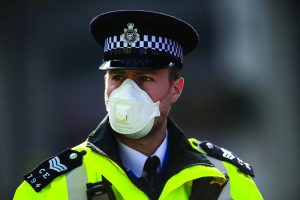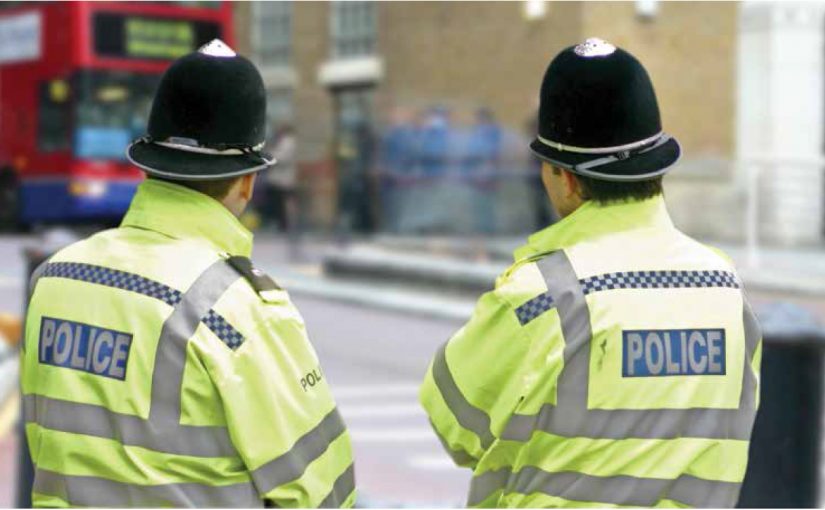In the history of the UK Police Force, “detective” used to be a coveted role that only the best and brightest police officers achieved. This was in part helped by extensive media coverage of real-life departments, such as the Metropolitan Police’s so-called Flying Squad, and UK TV drama series ranging from Sherlock to Line of Duty. However, this is no longer the case, and a crisis now exists where the detective role is a law enforcement area that very few police officers are willing to step into. This has resulted in a shortage of detectives nationally, which was noted as early as 2008 by the BBC and continues to become more dire. In the 2019 report by Her Majesty’s Inspectorate of Constabulary and Fire & Rescue Services’ (HMICFRS), the official body that inspects UK Police Forces, it stated that 14 percent of detective posts were empty.1
What Is a Detective?
The UK College of Policing is the centralized professional body that oversees training and development standards for all UK police forces. Its predecessor established the investigatory standards and levels of crime in 2003, which have been continually developed to today’s standards. This Professionalising Investigation Programme (PIP) breaks down criminal investigations into four investigative levels:
- PIP 1—priority and volume crime investigations such as theft and low-level assault
- PIP 2—serious and complex investigations such as rape and severe fraud
- PIP 3—major crime and serious and organized crime investigations such as murder
- PIP 4—strategic management of highly complex investigations2
The divisions of PIP are not always clearly matched with offense types. Therefore, guidance documents rely on a qualitative judgement surrounding the context of the suspected offense. For example, volume crime is one where the “sheer volume” of that crime has a “significant impact” on the public and the police investigating it.3
Every police officer who passes the probationary period of two years is accredited to PIP 1, a stage that everyone has to go through. A police officer becomes a detective when they achieve PIP 2 or above. The detective title is simply a description used for a police officer’s role and is not a defined rank within the UK policing hierarchy. Detectives are the officers who will investigate serious and complex crime from the initial reporting stage, as the primary investigation is often done by other officers at PIP 1, to charging with the Crown Prosecution Service and conviction in court.
Various police forces have different approaches to the requirements of PIP 2; however, the standards are the same for all. Each aspiring detective must complete the National Investigator’s Exam (NIE), a test of 80 multiple-choice questions on the particularities of UK criminal law, and a detective portfolio workbook, a list of real-life examples that the police officer can demonstrate meets the stated competencies of a detective. Once these two items are completed, the police officer is officially a detective.
Issues within the Detective Training Process
As previously mentioned, different police forces have various ways of encouraging and guiding internal police officer candidates into the detective role. Some police forces have specific “detective academies” focused on the internal training of new detectives, like West Midlands Police.4 Others do not.
Some police forces will use their budgets to pay for the textbook material for the NIE, pay external teaching organizations for NIE “crammer course” days, and will reserve dedicated and protected workdays for NIE revision. Others do not, in which case aspiring detectives have to do all of this in their free time outside of work and at their own financial cost.

Some police forces will have dedicated detectives to tutor “detectives-in-training” through their portfolio workbooks, ensuring that the officers get ample opportunity to complete them. Others do not.
Some police forces provide permanent bonus payments, such as the Thames Valley Police Force, for those who are training to be a detective, which is a financial incentive considering the additional work required to become accredited.5 Others do not.
Here lies the reality of UK policing. While there are national standards, each UK police force, as its own entity, has autonomy to approach everything its own way, including the training of detectives. This is in large part necessary due to the geographical, criminological, and budgetary differences across the UK, but it nonetheless results in a lack of standards where some police forces have detectives who are more skilled and better trained than their counterparts in other forces.
Yet, while clearly a factor, the additional learning and development hardship of becoming a detective is not the main reason why many do not follow that law enforcement career path. Much of the cause stems from the reality of working in the detective role, which is closely linked to the lived experiences of police officers no matter their duties.
Wider Issues
The Police Federation of England and Wales (PFEW) is the staff association for police officers in ranks from constable to chief inspector. Its primary purpose is to represent the collective view of members to the UK government, which funds the police as a national institution, and to advocate in PFEW members’ interests. To this end, the organization produces a Pay and Morale Survey. The 2021 survey, to which 29,587 officers responded, uncovered some of these key findings:
- Fifty-eight percent said that their morale was low, compared to 48 percent the previous reporting year.
- Sixty-seven percent would not recommend others to join the police, compared to 59 percent the previous year.
- Twelve percent of respondents stated they would resign over the next two years. Of these, 82 percent said that their morale had a major impact on their decision and 77 percent attributed the decision to the treatment of the police by the UK government. Ninety-two percent said they did not feel fairly paid for the stresses of their jobs.
- Forty-seven percent stated that their [poor] pay rise increased their intention to leave.6
This report suggests a much broader issue within the working lives of UK policing personnel, which has a direct impact on the mental well-being and capability of police officers to perform their jobs. Another PFEW report in 2020 included data specifically drawn from the more than 3,000 detective respondents:
- Thirty-seven percent rated their job as “very” or “extremely” stressful.
- Seventy-eight percent experienced feelings of stress, low mood anxiety, and other difficulties with well-being over the previous reporting year.
- Ninety-six percent, compared to 92 percent of other police officers, had seen a dead person, who had suffered a violent or unnatural death, at least once in their line of duty.
- Sixty-two percent, compared to 19 percent, had seen “large volumes of child sexual abuse imagery” at least once in the course of their career.
- Many of the anecdotal quotes mentioned “high workloads” and “poor staffing levels” as stressors.7
This survey suggests, at times, detectives are exposed to more severe trauma-related scenes than other police officers, which is an additional burden. Again, police forces differ in their approaches. Sometimes, PIP 1–trained police officers investigate PIP 1 crimes in addition to responding to emergency calls—whereas others have a mixture of PIP 1 and PIP 2 officers dealing with PIP 1 and/or 2 crimes without responding to calls. This is done instead by a dedicated ‘response’ police department. The workload in both scenarios is extremely high. Depending on the system used, detectives could have 20–80 investigations in their work tray. Each has at least one victim, one suspect, and potentially one witness. The department will also oversee certain live prisoners or live incidents, which take precedence due to risk strategizing—another extra duty that takes time.
The more complex the crime, the longer it takes to investigate and potentially get charged, unless the investigation is filed due to a lack of evidence. For example, the BBC reported in 2022 that the average time between a victim reporting a rape offense to the case reaching court was 706 days.8 For all offense types, the average was 708 days.9 There are various reasons behind this, such as funding cuts in the Crown Prosecution Service and Criminal Justice system, yet it still results in more investigations staying in the work tray of a detective. Depending on the set up of different police forces, the impact felt by detectives will vary, but any investigators of PIP 2 crimes will undoubtedly be affected.
Efforts to Discover the Solution
The UK, faced with the dual problem of a shrinking general police officer workforce and a shortage of detectives, set out to attempt to solve these issues.
For the police forces, the UK government announced increased funding to recruit 20,000 new police officers by 2023 to combat the reduction after the austerity measures enacted in the early 2010s. While this is a needed boost, much concern has been raised over this. The Police Federation has stipulated that this increase will put workforce numbers at slightly over the 2010 level.

However, the population the police will be covering will have increased by 4 million with the level of crime also increasing and becoming more complex. This suggests that general police force duties will still be under strain. As detectives were initially recruited internally, the staffing of their ranks was directly related to the increase in normal officers. Yet, as shown by the reluctance of current internal candidates to strive to be a detective, this uplift funding increase was unlikely to resolve the shortage of detectives. Therefore, a different approach was needed—the Direct Detective Entry Scheme.
The Metropolitan Police pioneered this approach in 2017. This scheme would allow individuals to join the police force and become detectives by the end of their two-year probationary period, without first having to do this period as general police officers. Over this two-year period, they would gain their core competencies as police officers and sit the NIE, enabling them to investigate PIP 2 crimes at the end of their probation. If the resources were stretched too far, they could investigate PIP 2 crimes before even becoming accredited.
While the same entry requirements remained, this enabled a secondary recruitment influx for detectives. For example, in 2020, 354 applicants were accepted, which makes a substantial contribution to the 5,000-detective shortfall, even taking into consideration people leaving before or after the initial two years.10 Other police forces have since adopted this approach.
On a national level, an organization called Police NOW exists to attract graduates to a training program to learn leadership skills and change the communities in which they work. Through its National Graduate Leadership Programme, initially, graduates are trained in policing before being supported throughout their two-year probationary period within their selected police force. The training was designed so that they would be a “neighborhood officer,” trained specifically to be experts in their local boroughs and solve long-term problems within their communities. Police NOW would offer leadership training and impact days to help enhance participants’ skills. Police NOW is Home Office–funded and was designed to attract candidates who wouldn’t ordinarily think of joining the police.
Police NOW expanded in 2019 with the introduction of the National Detective Programme to assist with solving the shortage of detectives. In a similar way to the Direct Detective Entry Schemes in police forces, this program, following the same training–focused regime of the National Graduate Leadership Programme, ensures that participants were detectives (at the PIP 2 level) by the end of their two–year probationary period. In the 2021 intake, 224 participants joined the program, including co-author Reece Bradley.11
Another method attempted is the creation of police staff investigators and police staff investigating officers to assist with aspects of criminal investigations such as witness statement taking and interviewing. Some police forces offer training for these individuals so that they attain PIP 2 accreditation and can investigate serious and complex crimes. To be clear, these are not warranted (sworn) police officers but civilian staff.
The U.S. State of Play
The United States is very similar to the UK in that each state (and even each city) has different recruitment requirements. However, the comparisons within the structure of the police forces largely stop there. While the Federal Bureau of Investigations (FBI) is responsible for inter-state crime, an exact comparison does not exist within the UK. Some have likened the UK’s National Crime Agency to the FBI, although within UK Police Forces, Regional Organised Crime Units (ROCUs) exist, which also perform a similar task. Unlike the UK, there seems to be little accountability or overseeing body for the national standards of the state police in the United States; however, the U.S. Department for Justice helps to investigate misconduct breaches. The recent Cost of Misconduct Police Act 2021 forces agencies to report such matters to the U.S. Attorney General.12
To become a detective, which is regarded as a rank in the United States, unlike in the UK, individuals first have to pass police academy and their probationary period to become a sworn police officer. Once they have gained experience, in some states, police officers demonstrate their investigative knowledge through the National Detective/Investigative Test, a multiple-choice exam similar to the UK’s NIE. Once this test has been completed, it is up to the discretion of the department to promote the police officer to the rank of detective. Like in the UK, many specializations exist within the field, such as larceny and homicide, offering a varied working career by crime type.

According to the U.S. Bureau of Labor Statistics in 2020, detectives/criminal investigators earned $20,000 more than patrol officers.13 Given the vast difference between state police forces, it is difficult to gauge if this is due to the ever-present reality of more overtime or a salary increase (as the detective role is seen as a promotion). It is likely that one or both approaches are taken by different states.
While the United States does not experience the same extent of a shortage regarding detectives specifically, it is facing similar difficulties with recruitment and turnover of new police officers. This has been reported across many states by well-established media outlets, such as the Wall Street Journal, suggesting that, to a greater degree than the UK, the general recruitment of police officers will soon impact the world of U.S. detectives. This is partly due to the stresses and strains of external events, such as highly reported deaths at the hands of police officers, which has caused some to take early retirement, some to leave, and some to not consider joining at all.14 This itself has impacted the UK at a much lower level, with the recent controversies of police officers’ conduct within the Metropolitan Police in 2022, resulting in it receiving less than half the applications it needs to fill its vacanies.15
Application of UK Lessons
It is clear that both the UK and the United States are facing recruitment and retainment issues for local law enforcement. While it is clearer for detectives specifically in the UK, currently, the issues surrounding general recruitment will impact the number of U.S. qualified detectives as well. Therefore, the initial focus must be to improve the general recruitment within the police. Some of the relevant aspects, such as external media’s impact on police forces’ reputations, are very difficult to control and not within the scope of this article’s focus.
However, despite a lack of expert knowledge of the U.S. system, it is clear that some conclusions can be drawn. For example, it is obvious that higher salaries for detectives in some U.S. states, especially as it is a rank rather than a role title, is a positive measure. Many police officers, including detectives, in UK Police Forces stated in the Police Federation Report that they did not believe they were paid enough for the work that they did. What is crucial is to ensure that this is maintained and matched with the standard of living in each state respectfully. The gap between patrol officer and detective can also act as a financial incentive to strive for the next rank in U.S. law enforcement. This is something that some—but not all—UK Police Forces offer.
A key standing difference between the UK and the United States is the existence of a direct entry detective scheme in the former. While criticized by external and internal law enforcement stakeholders (for example, they state it does not provide well-rounded police officers as the focus is on investigations), it is a clear additional recruitment tool for a struggling area within the UK. The UK is very early still in its implementation of the program. As UK police forces have varying standards, it is likely that the embedded direct entry programs have a greater initial chance of success as opposed to national programs like Police NOW. However, this does not detract from the benefits of a national scheme, such as greater publicity and the chance of government support.
If the challenges of U.S. law enforcement recruitment continue, a partial solution may lie in a version of the UK’s direct entry program. Such an approach could be used to support certain roles where recruitment is also struggling within the warranted police officer remit. However, any such attempt must be acutely aware of the prospect of increasingly siloed and specialized departments that are not trained to perform the basic duties of a non-specialized police officer.
It is important that any positive measures are taken early to avoid the increased burden on existing staff, which may cause them to reconsider their job and career options as in the UK and United States. It is clear that policing will always be a unique—and therefore, to some, appealing—prospect and measures shown in the UK will hopefully ensure that this continues. d
Notes:
1Her Majesty’s Inspectorate of Constabulary and Fire & Rescue Services (HMICFRS), PEEL Spotlight Report: A System Under Pressure (2019).
2College of Policing, Professionalising Investigations Programme: Programme Policy 2018.
3College of Policing, Professionalising Investigations Programme: Programme Policy 2018.
4HMICFRS, PEEL 2021/22: Police Effectiveness, Efficiency and Legitimacy (2021).
5Thames Valley Police, “Bonus Payments for Police Officers April 2021 – March 2022 (Including Temporary Targeted Bonus Payments),” agency policy.
6Nicola Chandler, Pay and Morale Survey 2021: Headline Report December 2021 (Police Federation, 2021).
7Police Federation, “Detectives in Crisis,” factsheet.
8Judith Burns, “Rape Cases should be Tried in Specialist Courts, Says Report,” BBC News, February 25, 2022.
9Dominic Casciani, “Criminal Prosecution Delays Hit Record 708 Days,” BBC News, January 20, 2022.
10Chloe Livadeas, “Met Direct Entry Scheme Proves Popular with Women and BAME,” BlueLineJobs.co.uk, January 18, 2021.
11Police NOW, Impact and Insights Report 2020/21, 2021.
12GovInfo, “S.540 (IS)-Cost of Police Misconduct Act of 2021.”
13“Police Salaries: A Guide,” Police1, July 29, 2021.
14Weihua Li and Ilica Mahajan, “American Police Say Officers are Quitting in Droves. Federal Data Says Otherwise,” Time, updated September 4, 2021.
15Chiara Giordano, “Scandal-Hit Met Police Receiving Less than Half of Applications It Needed But Does Not Know Why,” Independent, March 23, 2022.
Please cite as
Reece Bradley and David Knight, “A UK Crisis of Detectives: An Attempt to Solve the Mystery,” Police Chief Online, December 14, 2022.



